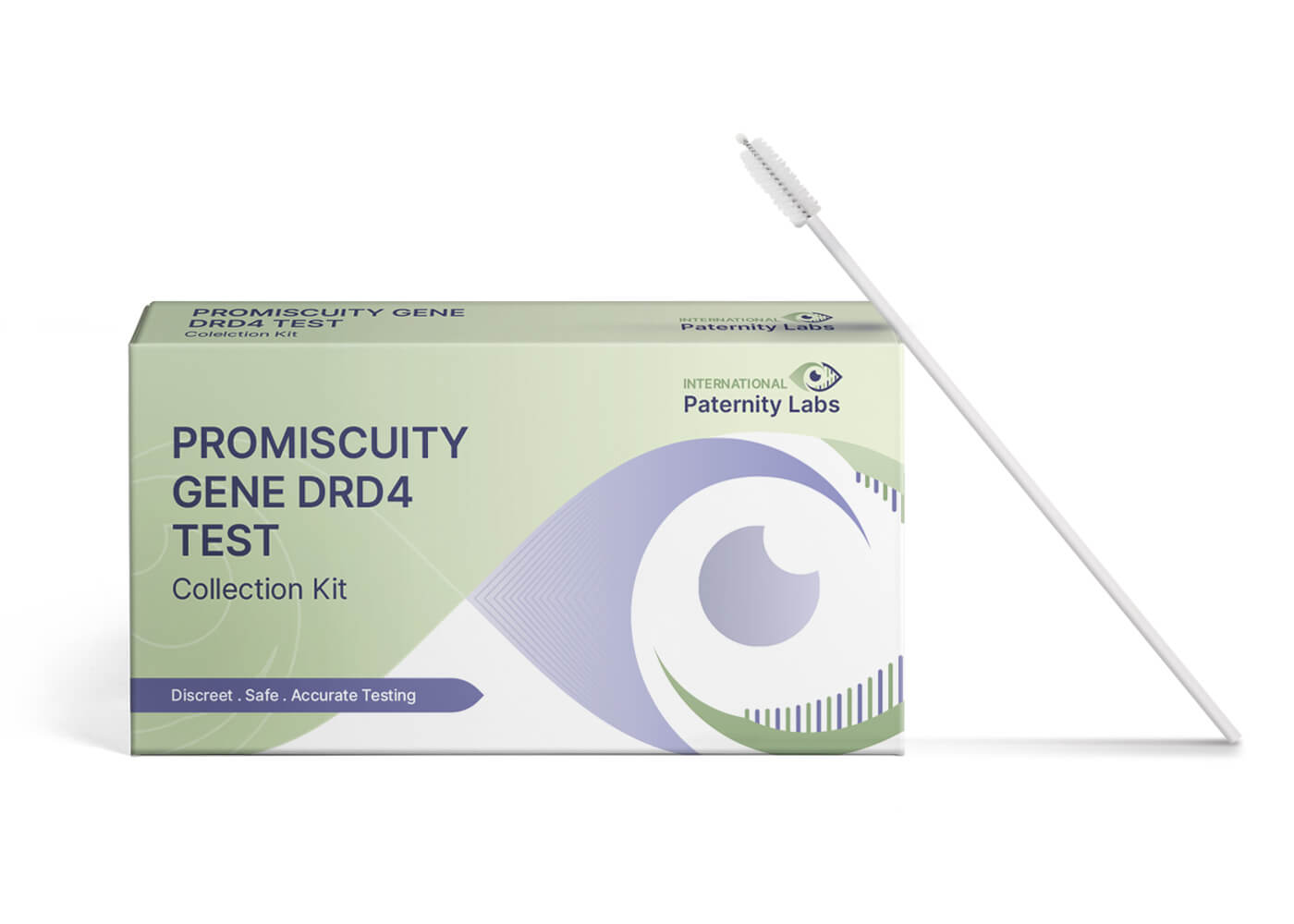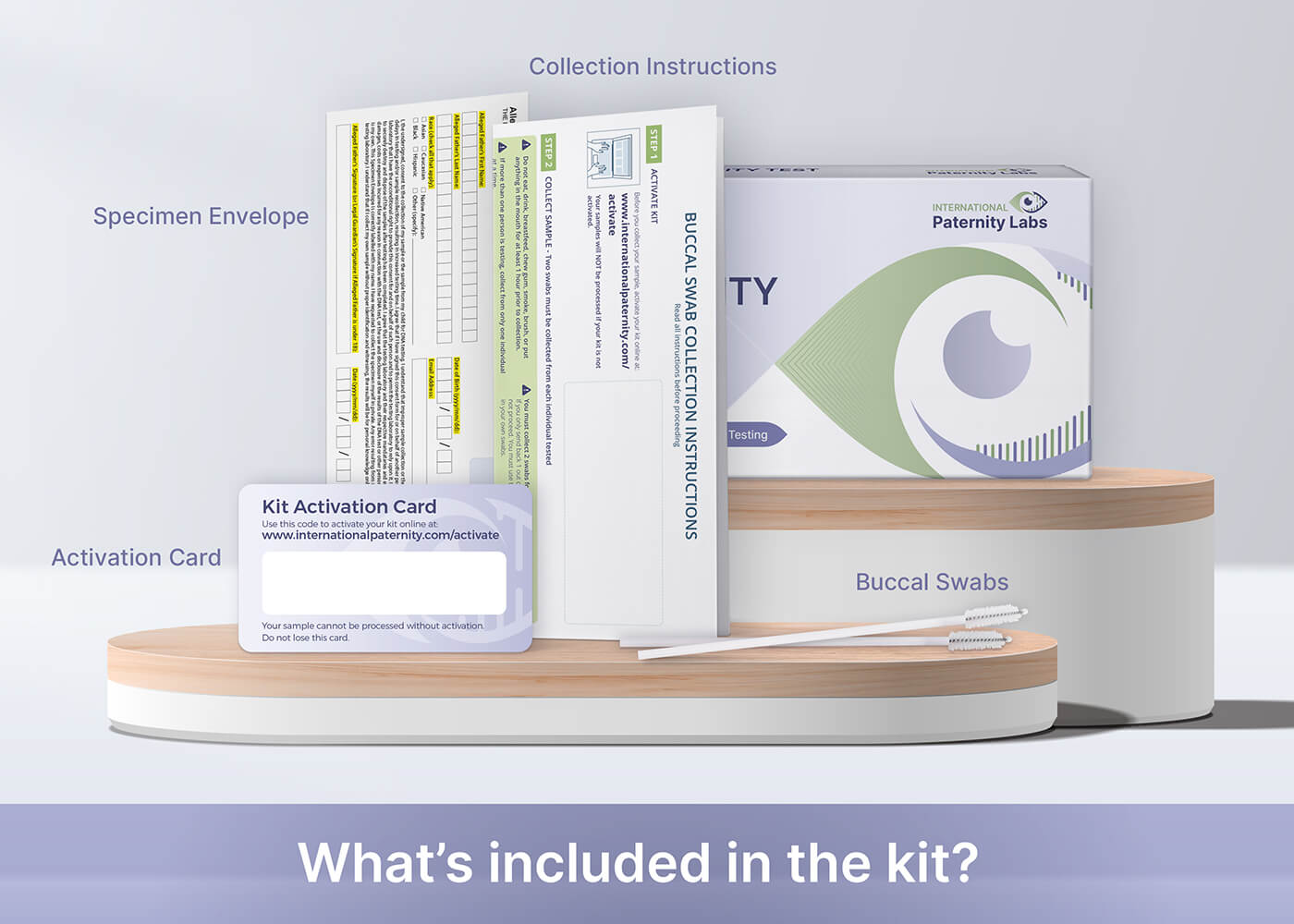Promiscuity Gene DRD4 Test
Find out if you possess a genetic variation linked to elevated tendencies for sexual promiscuity.
- Simple buccal swab sample collection
- Discreet, Safe and Accurate
- Includes all laboratory fees
$149.00
DNA Tests

Order Your Confidential Home DNA Test Online!
About this test
Description
The genetic variant associated with an increased tendency for sexual promiscuity is the “promiscuity” gene, which manifests as the 7R+ version of the DRD4 gene.
Dopamine, a neurotransmitter responsible for feelings of reward and pleasure, is produced in the brain. The dopamine receptor D4, encoded by the DRD4 gene, binds with dopamine and facilitates signal transmission into the cells.
The “promiscuity” gene, also referred to as the 7R+ version of the dopamine receptor, exhibits altered receptors that bind dopamine less effectively than the common 4R version. Consequently, there is a diminished transmission of the dopamine “feel-good” signal in the brain.
Individuals with the 7R+ variants necessitate higher levels of dopamine to experience the same “good feeling” effects. Interestingly, engaging in sexual activity is a documented way to elevate dopamine levels.
Technical Specifications
The AVPR1A gene is situated on chromosome 12, and each person inherits two copies of this gene, one from each parent. A straightforward DNA test can determine the specific forms of AVPR1A that an individual has inherited.
The Gene Under Examination Variation in the DRD4 gene often manifests in a 48-base pair repeat region, where the number of repeats can range from 2 to 11.
We inherit two copies of the DRD4 gene, one from each parent, allowing for the inheritance of either two identical copies (e.g., both 4R) or two distinct copies (e.g., 4R and 7R).
This test evaluates the length of the repeat region within the DRD4 gene and specifies the number of repeats present in each of an individual’s DRD4 alleles.
If an individual possesses at least one copy of the 7R+ allele (comprising 7R, 8R, 9R, 10R, and 11R), their likelihood of engaging in promiscuous behavior is twice as high compared to individuals with 7R- alleles (fewer than 7 repeats).
100% Confidentiality
As our client, your privacy is extremely important to us, and we hold all information provided us in strict confidentiality. We will never sell, resell or make available your personal, or financial information to other companies or organizations. You will only be contacted using the method you choose, to confirm your order or to discuss your case. All communication is in the strictest confidence, and for that reason, we require you to create a password that will restrict access to your case. In addition, our privacy policies that have been established in our laboratory and offices safeguard the security of your case.




